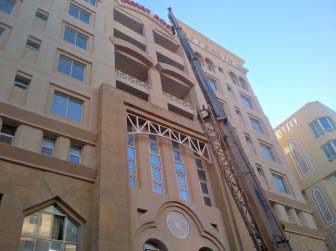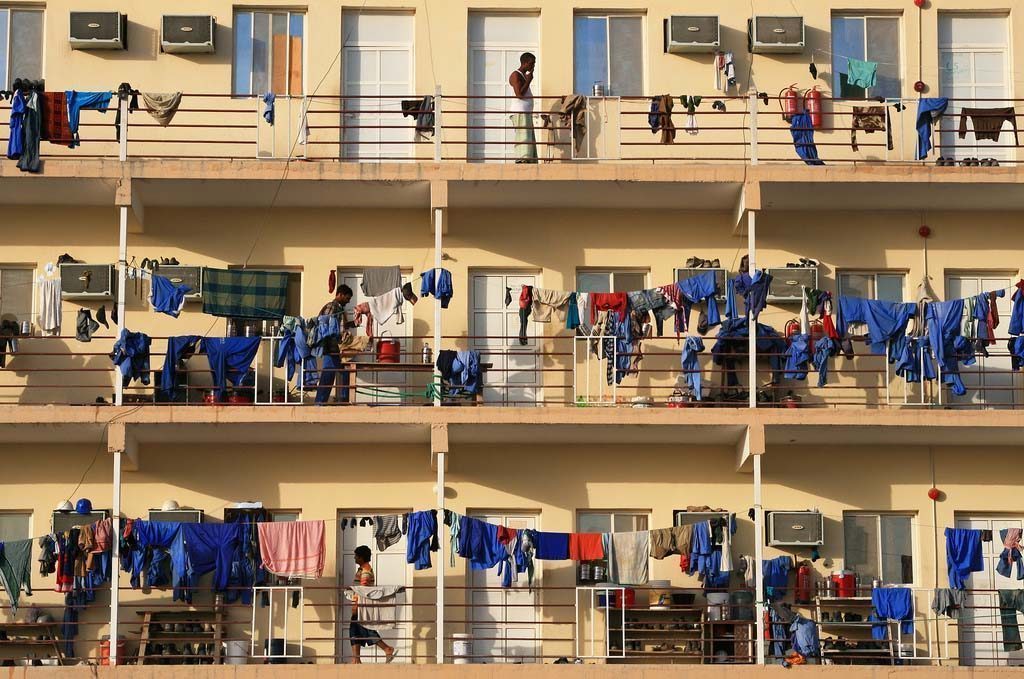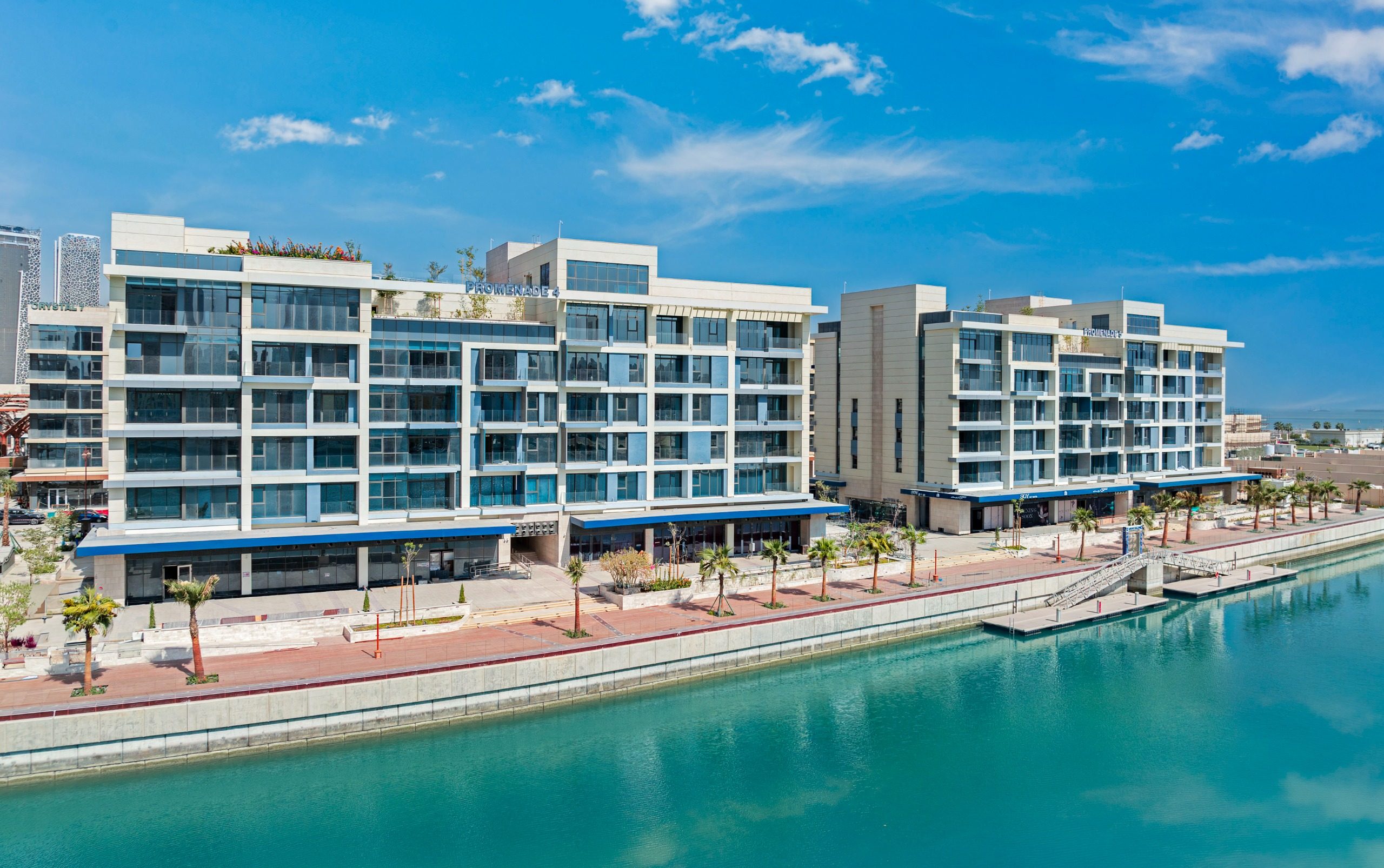
More affordable mid- and high-rise residential accommodations are needed in Qatar, and an end should be put to ongoing rent increases for the nation’s lower income workers, members of the Central Municipal Council (CMC) said yesterday.
Due to an ongoing shortage in affordable housing, particularly in central Doha, many residents live in villas and apartments that are illegally sub-divided.

This overcrowding puts a burden on utilities and neighborhood amenities such as parking and garbage collection, as well as threatens the safety and security of residents, some CMC members said during their weekly meeting.
Partitioning single housing units in order to sub-let them on a multiple-occupancy basis without permission from the authorities is illegal in Qatar under Law No. 4 of 1985.
As part of a crackdown on partitioning, the 30-year-old law was updated last summer to introduce tougher penalties on those caught modifying properties illegally.
In addition to fines of up to QR500 per square meter for illicitly modified properties, plus a charge for reinstating it to its original state, the new requirements also include penalties of up to QR100,000 on the contractors who undertake these changes.
More housing
But CMC members argue that authorities should create more affordable housing options before punishing those who are living in partitioned accommodation.
They also spoke out against demolishing the properties, which would lead to massive rent hikes in nearby remaining apartments, as demand would significantly outstrip supply.
CMC member Hamad Lahdan al-Muhannadi, as quoted in The Gulf Times, said:
“Most buildings in the country follow the two- or three-story system, producing a limited number of units. Consequently, people resort to such practices (partitioning). We need to find practical and valid alternatives before taking any measures against this practice.
The urban planning authorities should adopt more open strategies and give licences for higher apartment blocks in different parts of the country. When the units are available, the situation will ease.”
The CMC has previously called for taller apartment buildings to be built in particularly congested parts of the Doha, such as around C-Ring Road, New Salata and in Al Rayyan.

However the Ministry of Municipality and Urban Planning (MMUP/Baladiya) had rejected these proposals, on the basis that existing public services and utilities in these areas were not designed to cope with such a load.
While higher-rise apartment buildings do exist in some areas such as West Bay and the Pearl-Qatar, these are in luxury blocks where rent levels would be well beyond what residents on a limited income could afford.
The problem does not appear to be going away anytime soon. As Qatar’s population continues to grow, a report published last month by real estate firm DTZ said that demand for affordable housing in Qatar would remain high throughout this year.
While developers focus on building new high-end units, they are constructing an inadequate number of affordable homes to keep pace with demand. DTZ highlighted family accommodations – namely four and five-bedroom villas – as being particularly in short supply.
Qatar’s commitment
Meanwhile, earlier this week, Qatar outlined its commitment to providing “adequate housing” as a basic right of all its residents at a UN Human Rights Council session in Geneva.
Addressing the session, Noemi Mohamed al-Hajri of Qatar’s Foreign Ministry’s Human Rights Department said that the state is working to provide adequate and decent housing for all nationals and expats.
Enshrined in Ministerial decision No. 18 of 2014 is the commitment to providing decent housing for expatriate workers in accordance with internationally recognized standards, Gulf Times quoted al-Hajri as saying.

Qatar faces a housing crisis, particularly in the affordable sector, as it increases its population to meet the looming deadlines of its many infrastructure projects.
Residential rental costs continue to rise, with recent figures from the Ministry of Development, Planning and Statistics showing increases of more than 7 percent year-on-year.
The CMC’s latest calls echoes concerns previously voiced by its members about the issue of housing shortages and high rents.
Last summer, councillor Mishal Al Dahnim called for the government to introduce a cap on rent increases, permitting them to to up by a maximum of 10 percent every two years.
“Rents should not be left to supply and demand. Supply is much less compared to demand and will lead to an unprecedented crisis … There must be a law to control rents,” he said.
Meanwhile, in recent years authorities have been working to create workers’ residential zones in Qatar, relocating male workers living without their families out of established residential areas.
In 2011-12, authorities issued a ban on laborers – often dubbed “bachelors,” even though many are actually married – in established residential areas in Doha, but the directive was implemented without building enough alternative accommodation.
The move came after several Qatari families complained about “lack of respect from expatriate bachelors for local values and traditions and menaces to the Qatari way of life.”
Thoughts?







